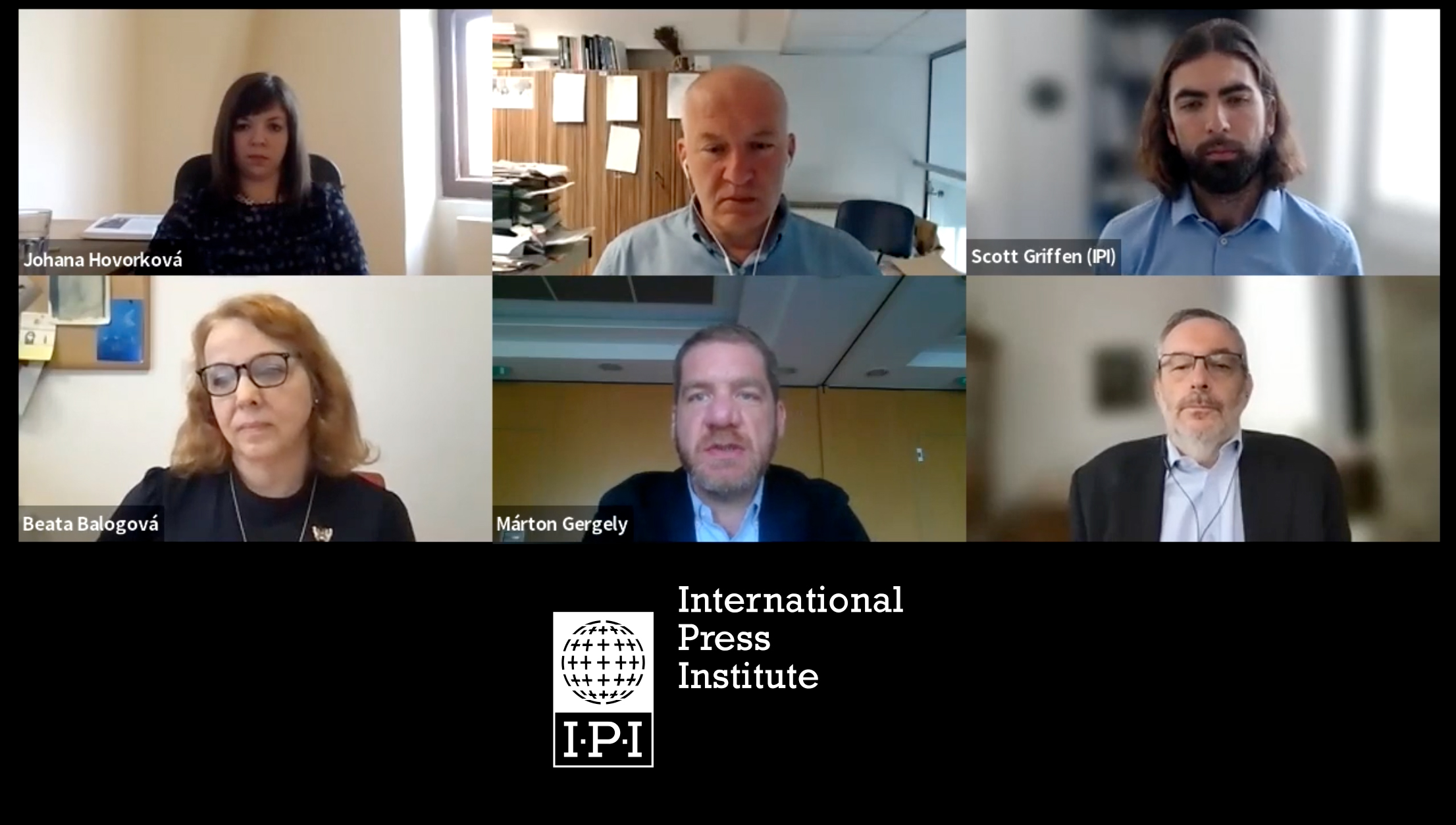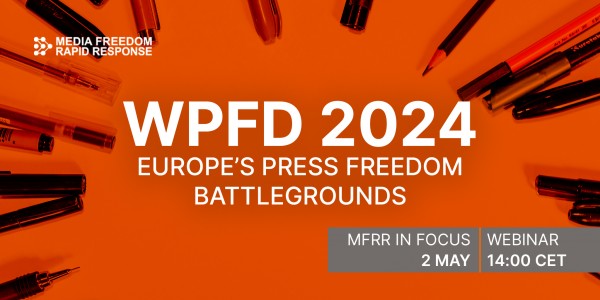Recent elections in multiple Central European countries have set the course for independent journalism across the region. At the same time, Russia’s war on Ukraine has cast a shadow over the future of press freedom in Central Europe, as pro-Russian disinformation and propaganda has infiltrated the regional information landscape.
To mark World Press Freedom Day 2022, journalists from leading independent outlets across the region came together on May 2 to discuss challenges to press freedom in the wake of these elections and the influence of Russian information warfare.
In Hungary, the re-election of Viktor Orbán in Hungary on April 3 clearly demonstrated the impact of media capture on democracy, and sparked renewed concerns about the fate of independent media not only in Hungary but across Central Europe. Orbán won a decisive election victory, many say, by capitalizing on his government’s capture of the media to downplay his cozy ties with Moscow and to paint the leading opposition candidate as aiming to drag Hungary into the war.
“It is quite certain that this election was won with lies”, Márton Gergely, editor of the Hungarian independent weekly HVG, said. According to Gergely, many journalists have asked themselves about the fate of what remains of the country’s independent media and how to keep on working in an environment with such a shrinking space for press freedom.
“Since the election, we have seen that Orbán and Fidesz will not step back from their path”, Gergely added. Just weeks after the election, independent radio station Tilos Rádió was notified by the media regulator that its operating licence will expire this September.
In Slovenia, the election result was the opposite of that of Hungary’s, with Prime Minister Janez Janša, an ally of Orbán who sought to implement some of Hungary’s media capture tactics, being defeated on April 24. According to Ali Žerdin, the editor of Sobotna priloga in Slovenia, published by daily Delo, the key difference between Hungary and Slovenia is that Janša was unsuccessful in influencing important parts of the media sector, with daily newspapers as well as leading commercial television broadcasters remaining independent.
Žerdin characterized Janša’s worrying attempts to take over the public television as clumsy, at times even “rather funny then scary.” He also said that Janša’s government’s attempt to gain control over the Slovenian Press Agency turned out to be costly for Janša. “The consequence of his attempt to damage the Slovenian Press Agency was significant mobilization of solidarity in the society to support the Slovenian Press Agency and to ensure its existence,” Žerdin said.
The battle against disinformation
In the Czech Republic, press freedom is heading in a more positive direction after the election defeat last year of Prime Minister Andrej Babiš, who also showed signs of following the Orbán path and who had attempted to rein in the country’s public service broadcaster. “It has been a substantial change for us. After six years, we can go to press conferences, ask the politicians questions, and get replies. It is an important thing for us”, Johana Hovorková, the editor-in-chief of Forum24, said. The government of Czech Republic has also announced plans to better ensure the independence of the public broadcaster.
Gergely noted that the reason that Babiš in Czech Republic and Janša in Slovenia were not successful in their bids for re-election was because neither went as far as Orbán to control the media. “They would have had to take a few more steps to have total control over the media as Orbán is having”, he said.
In Poland, press freedom was granted a reprieve when President Andrzej Duda vetoed the controversial “lex TVN” bill in December 2021. The bill would have tightened the rules of foreign media ownership and ultimately forced the sale of American-owned broadcaster TVN, which is critical of the current government. The government, led by the right-wing populist PiS party, has followed the Orbán media playbook closer than any other country in the region. The nominal public service broadcaster is a vessel for state propaganda while Poland’s state-controlled oil company recently purchased the leading publisher of regional media, promptly leading to an editorial purge.
The surprising decision to veto lex TVN came after appeals from 17 international media freedom and journalists’ groups as well as – crucially – the United States. “They managed to convince President Duda to return to the path of democracy and unexpectedly he vetoed this law. In terms of media, we are independent. On the other hand, we have quite a few independent newspapers in Poland which have been attacked by the government. It is a paradox”, Michał Broniatowsk from Onet/Politico Poland said.
Russian disinformation is a major challenge throughout the region. Both the Czech Republic and Slovakia are wrestling with the best approaches to propaganda. In Poland, Broniatowski said that while Russian propaganda in Poland is present, it is generally confined to the margins. Unlike Hungary, the Polish government is vehemently anti-Russia and the editorial line of both independent and government-influenced media is pro-Ukraine.
In Hungary, as moderator Balogová noted, the role of Russian disinformation is also unique in the region given that pro-government media often play this role on their own. As Gergely put it, “The Russian trolls are having an effortless way here in Hungary because the government-controlled media is having ‘second thoughts’ about the Western version of the events” or about who committed certain crimes, such as the massacre in Bucha.



